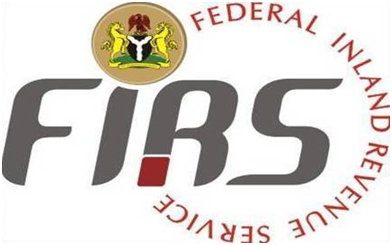
By Omodele Adigun
Federal Government’s revenue rose to N3.64 trillion in September 2025, an increase of 411 per cent over the N711 billion recorded at inception of President Bola Tinubu’s administration in May 2023.
Zacch Adedeji, the Chairman of Federal Inland Revenue Service (FIRS), disclosed this while speaking with State House correspondents in Abuja.
He attributed the recent steady growth in Nigeria’s revenue to bold fiscal reforms introduced by President Bola Tinubu’s administration.
The FIRS boss said non-oil revenue grew sharply from N151 billion to N1.06 trillion in two years, marking a major shift in Nigeria’s earnings profile.
Oil revenue also rose to N644 billion, while VAT collections tripled to N723 billion, signalling stronger compliance and improved efficiency across sectors.
Adedeji attributed the performance to reforms that streamlined taxes, eased burdens on SMEs, and introduced compliance tools like e-invoicing and new excise regulations.
He added that a presumptive tax regime will soon capture hard-to-tax sectors, while state levies will be harmonised to expand the tax base.
“Our goal is to build a fair, efficient, and sustainable tax system that supports growth and boosts investor confidence,” Adedeji stressed.
He confirmed that unbacked Ways and Means advances from the Central Bank have been halted, with the loans reclassified and treated as federal debt.
“The debt is now collateralised. Both principal and interest are being repaid, ensuring exchange rate stability and system confidence,” he said.
Dismissing concerns about borrowing, he insisted it is a normal practice vital for economic sustainability when properly legislated and directed towards infrastructure.
“Borrowing funds infrastructure that generates future tax revenues from beneficiaries. This is a sustainable approach for long-term development,” he explained.
Mr Adedeji announced that Personal and Company Income Tax reforms will begin in January 2026 to widen Nigeria’s revenue base further.
He reiterated that the reforms aim to cut borrowing reliance, strengthen fiscal resilience, and sustain Nigeria’s economic growth trajectory.




Hello, i think that i saw you visited my site so i came to “return the favor”.I’m attempting to find things to improve my web site!I
suppose its ok to use a few of your ideas!!
Artikel ini menurut saya sangat lengkap karena mampu menjelaskan KUBET secara detail.
Tidak banyak tulisan yang bisa memberi gambaran jelas mengapa KUBET disebut sebagai Situs Judi Bola Terlengkap.
Bagi saya, penjelasan seperti ini sangat penting agar pemain bisa lebih berhati-hati memilih platform.
Artikel ini layak dijadikan referensi, terutama bagi pemula.
kuwin sở hữu kho game đa dạng từ slot đến trò chơi bài đổi thưởng, mang đến cho bạn những giây phút giải trí tuyệt vời.
iwin – nền tảng game bài đổi thưởng uy tín, nơi bạn có thể thử vận may và tận hưởng nhiều tựa game hấp
Khám phá thế giới giải trí trực tuyến đỉnh cao tại MM88, nơi mang đến những trải nghiệm cá cược thể thao và casino sống động.
kuwin sở hữu kho game đa dạng từ slot đến trò chơi bài đổi thưởng, mang đến cho bạn những giây phút giải trí tuyệt vời.
苹果签名,苹果超级签平台,ios超级签平台ios超级签苹果企业签,苹果超级签,稳定超级签名
Tham gia cộng đồng game thủ tại Go88 để trải nghiệm các trò chơi bài, poker phổ biến nhất hiện nay.
苹果签名,苹果超级签平台,ios超级签平台ios超级签苹果企业签,苹果超级签,稳定超级签名
iwin – nền tảng game bài đổi thưởng uy tín, nơi bạn có thể thử vận may và tận hưởng nhiều tựa game hấp
Đến với J88, bạn sẽ được trải nghiệm dịch vụ cá cược chuyên nghiệp cùng hàng ngàn sự kiện khuyến mãi độc quyền.
kuwin sở hữu kho game đa dạng từ slot đến trò chơi bài đổi thưởng, mang đến cho bạn những giây phút giải trí tuyệt vời.